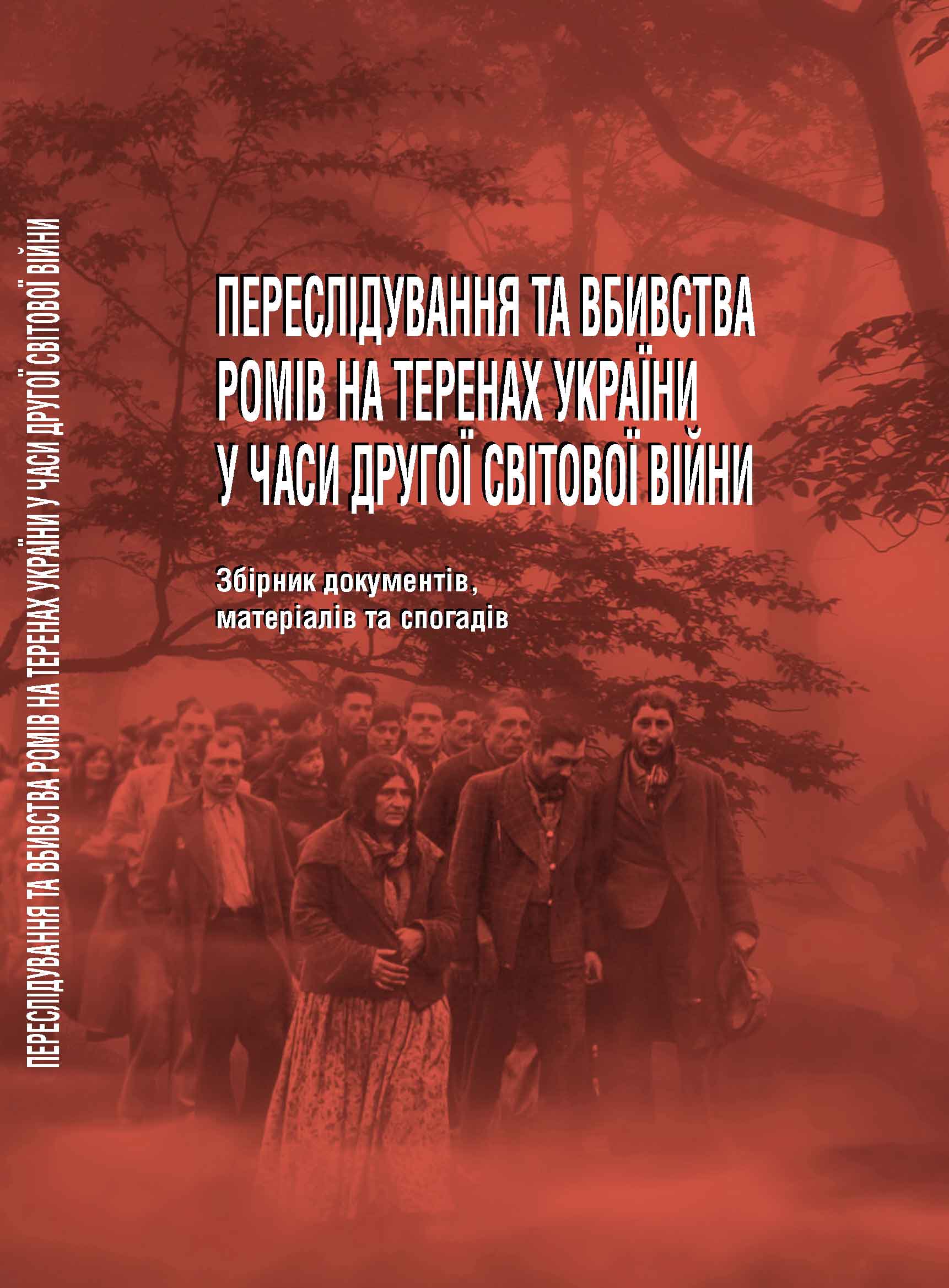Persecution and mass murder of the Roma in Ukraine during the World War II: Collection of documents, testimonies and related materials (Ed. by Mikhail Tyaglyy). Kyiv: Ukrainian Center for Holocaust Studies, 2013, 208 p. [in Ukrainian]. ISBN 978-966-2214-31-4
The aim of the collection is to attract attention of the historians, educators and wider audience to the problematic of the persecution and extermination of the Roma in Ukraine occupied by the Nazis in 1941-44. The book presents the issues understudied, the patterns of the historical sources which are still unexplored by the scholars, and the original testimonies recorded from the Roma survivors and those non-Roma eyewitnesses of the persecution.
The book consists of three chapters.
- Chapter 1. Records of the governmental bodies, occupation administrative authorities and security apparatus, local administrations and auxiliary structures, postwar investigating agencies and justice agencies;
- Chapter 2. Oral history testimonies recorded from the Roma survivors and non-Roma witnesses of the Roma genocide in Ukraine occupied, 1941-44;
- Chapter 3. Papers by the winners of the “Forced labor, persecution and massacres of the Roma in the Ukraine occupied, 1941-44” section at the XIII Annual competition of the pupil’s papers “History and lessons of the Holocaust” (Kyiv, May 2013).
Three appendixes contain:
(1) Statistical diagrams showing the cases of the mass murder of the Roma in the German-occupied Ukraine, both in the areas under military control and civil administration;
(2) Map of the Ukrainian locations where the Roma were murdered (as known from the sources explored up to present);
(3) Bibliography of the recent items of the Roma genocide in the Ukraine occupied in 1941-44.
The book is result of the research and educational project run in 2012-13 by the Ukrainian Center for Holocaust Studies and supported by the International Foundation “Mutual Understanding and Tolerance”.
The electronic version of the book can be downloaded for free from the UCHS’ website at: roma_book.pdf
To obtain a hardcopy, please contact Mikhail Tyaglyy at mikhail.tyaglyy@gmail.com
Announcements
MoreLatest News
-
(No) Children’s Stories Exhibition in Odesa
Starting the year with a powerful event - from January 19 to 30, 2026, Odesa will host the exhibition (No) Children’s Stories for the first time.
[More] -
Bibliographic Database “Jewish Studies in Independent Ukraine”
The Ukrainian Association for Jewish Studies has begun work on a project to create a bibliographic database entitled Jewish Studies in Independent Ukraine. The project envisages the creation of a reference resource covering various types of academic publications, as well as dissertations and educational publications
[More] -
Happy New Year 2026 from the Ukrainian Center for Holocaust Studies!
2025 was a year of action and partnerships. With our team and partners, we made many meaningful initiatives possible.
[More] -
The Formation of Holocaust Scholarly Discourse in European Nations
On December 16, 2025, the State Institution Institute of World History of the National Academy of Sciences of Ukraine held the International Scientific Conference The Formation of Holocaust Scholarly Discourse in European Nations.
[More] -
Research Team Meeting for the Project “One Stone - One Life: 80 Stumbling Stones for Kyiv”
On 13 December 2025, the first in‑person meeting of school research teams took place in Kyiv. These teams are currently studying the biographies for new Stumbling Stones. Five teams from Kyiv and one from Odesa - history teachers working together with their students - are each conducting their own research.
[More]





